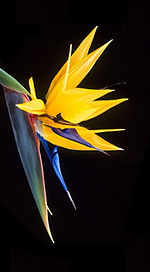Wikimedia Quarto/2/Board-letter/simple

The year 2004 was unusual for Wikimedia in many ways. It was a year of growth in internationality.
2004 enjoyed much growth of projects in languages other than English. The number of encyclopedia articles in other languages exceeded the number of articles in the English Wikipedia. A multilingual portal was put up at http://www.wikipedia.org, after two years of discussion.
Many local communities now operate on their own, rather than copying the English community. Some have become a source of inspiration for other projects. Many new projects have been started in local communities: publications on CD, the Merry Christmas project, the Translation of the Week, and, most recently, the International Writing Contest. These projects are described later in this letter.
The past year also had large meetings of Wikipedians in person, in many cities: Paris, Berlin, Munich, Rotterdam, London, Taipei - to name a few. The existence of such active communities is proof of the global development of our projects.
However, communication between various communities is still difficult at times. This is not surprising, considering how many languages are spoken by Wikipedians. Efforts were made this year toward greater interaction among communities, and toward improving a meta-site, http://meta.wikimedia.org, open to all communities. Effort was also made to translate the key pages on meta and other sites, and to take into account opinions from all projects.
A publication such as the Wikimedia Quarto would have been in at most one or two languages, a year ago. It is now translated in many languages.
The international aspect of our project is also visible in other ways: through the creation of the Wikimedia Foundation to support the growth and development of all our projects, and through the election of two members of the Board to represent Wikipedians. Both of those representatives are female, as I never tire of saying; this is rare in administrative circles. 2004 also saw the creation of two local associations, one German and one French, and the preparation of other legal structures.
In short - three years ago, I joined a small English-language project, http://www.wikipedia.com, owned by an unknown American entrepreneur. It was a fabulous project, but it was centered around English. This was sometimes frustrating. Today, it has become a complex worldwide project, sustained by a non-profit organization.
In 2005, I wish for us to increase the number of participants in languages with smaller Wikipedias (such as Arabic), through external collaborations, if necessary. I also hope we will become a resource for readers in countries with little technological infrastructure, where there is no access to the Internet. Working with editors from all cultures is important, so that our perspective can be neutral and balanced.
None of us reading this lack access to information. We suffer from too much information! Television, radio, newspapers, the Internet... Our problem is filtering information, and getting reliable information. However, most people do not have all of these information sources, and need help. We must not widen the gap between those who have access to information, and those who do not have it!

Lastly, this is an opportunity for us to discover men and women from all countries. We can balance our similarities and our differences, and try to live with, tolerate, and appreciate these differences. In many countries, such differences are regulated with bombs, to keep some groups silent. In our projects, we have no choice but to find a consensus. Here we have only words, and must use them.
- --Anthere / Florence Devouard
If you have questions or comments, we would love to hear from you. You can reach us on our talk pages (see [1]), or by email to: board (at) wikimedia.org.